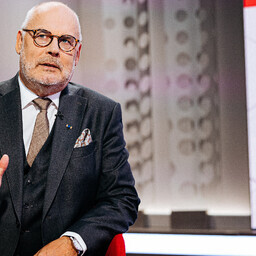President Alar Karis goes to the UN. He says the UN must be better. Karis says violence should not rule the world.
Karis asks a UN leader what has happened. The leader says things are worse. This shows more work is needed. Many countries understand the UN must act. Small countries can work together to make the world better.
Karis thinks if the UN is useful. He asks what the alternative is. Now, there is no other place for countries to talk. Each country talks about its problems. Some want to solve their issues. Others want their voices heard far.
Karis asks if speeches change anything. He says people listen to the Secretary-General and Brazil’s president. The US president is also important. Other speeches are heard, but the room is not always full. People go to their meetings.
The Ukrainian president's speech was emotional. The room was full. He talked about Ukraine and the world.
Estonia was in focus because Russia broke its airspace. Estonia’s foreign minister spoke at the UN. Karis says Estonia did good work. He hopes planes will not enter our airspace again and the war in Ukraine will end.
Many countries recognize Palestine. Estonia has not yet. Karis says Estonia supports a two-state solution. He thinks the government must decide what to do.
Karis meets many leaders at the UN. He talks to Argentina’s president. He learns speeches are planned carefully. Karis also meets the Dutch queen. They talk for a long time.
The US president criticizes the UN. Karis says his speeches can be seen with humor. But his words have weight. The UN has much work because there are many conflicts. Karis believes the UN is needed because there is no alternative.
President Alar Karis travels to the UN. He states that the UN must improve and that violence should not dominate the world.
Karis questions a UN leader about recent developments. The leader responds that the situation has worsened, indicating the need for more effort. Many countries recognize that the UN must take action. Smaller nations can collaborate to create a better world.
Karis contemplates the usefulness of the UN and ponders what the alternative might be. Currently, there is no other platform for countries to communicate. Each country discusses its issues, with some aiming to resolve their problems and others seeking to have their voices heard.
Karis questions whether speeches have any impact. He notes that people listen to the Secretary-General and the president of Brazil. The US president also holds significant influence. While other speeches are heard, the room isn't always full, as people attend their respective meetings.
The Ukrainian president delivered an emotional speech to a packed room, addressing Ukraine and the world.
Estonia was in the spotlight due to Russia's violation of its airspace. Estonia’s foreign minister spoke at the UN, and Karis commended Estonia's efforts. He expressed hope that such airspace violations will not recur and that the war in Ukraine will end.
Many countries have recognized Palestine, but Estonia has yet to do so. Karis affirmed Estonia's support for a two-state solution and emphasized that the government must decide its course of action.
Karis met with numerous leaders at the UN, including the president of Argentina, and learned that speeches are meticulously planned. He also had an extended conversation with the Dutch queen.
The US president criticized the UN, and while Karis found his speeches humorous at times, he acknowledged their weight. The UN faces significant challenges due to numerous conflicts, but Karis believes it is indispensable because there is no viable alternative.

